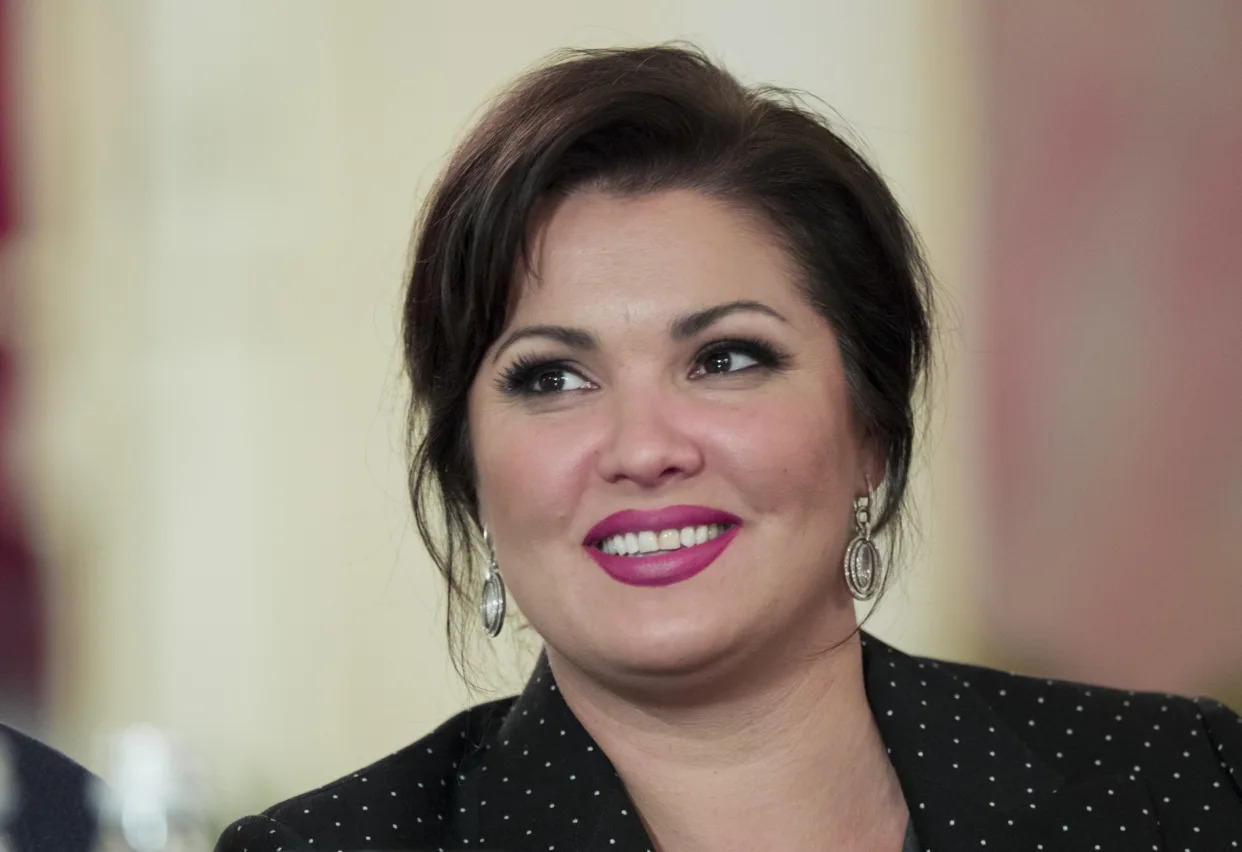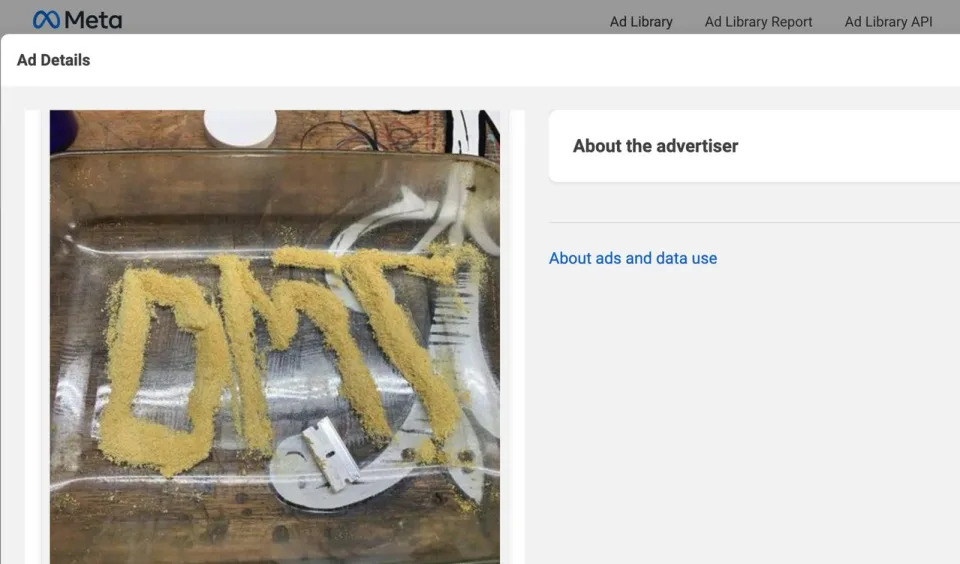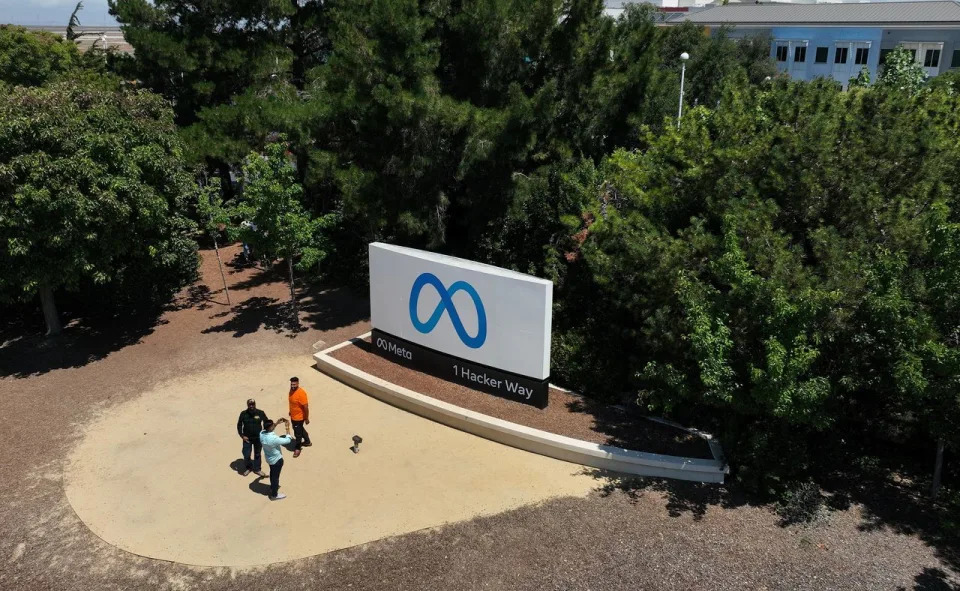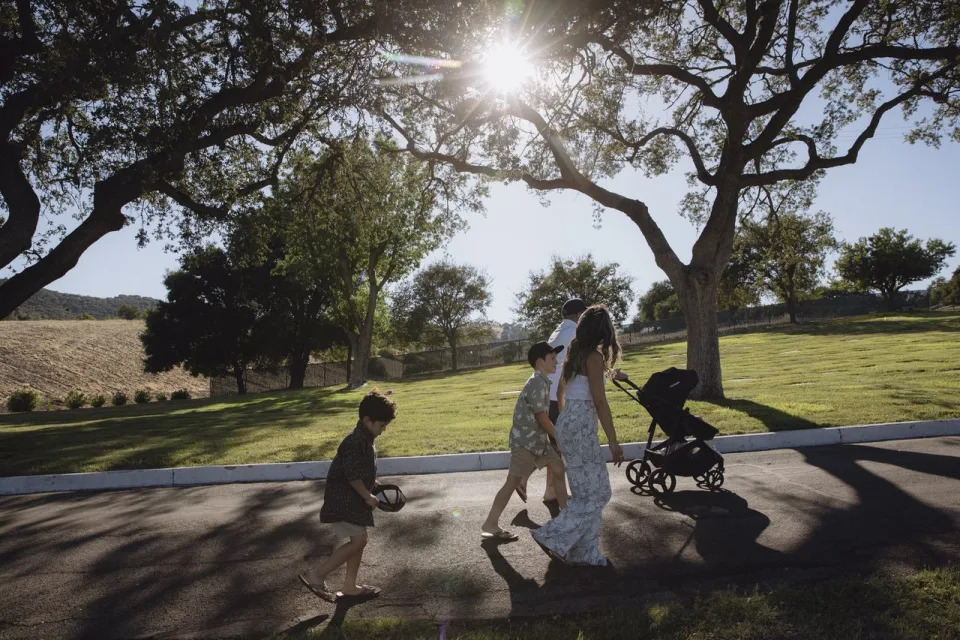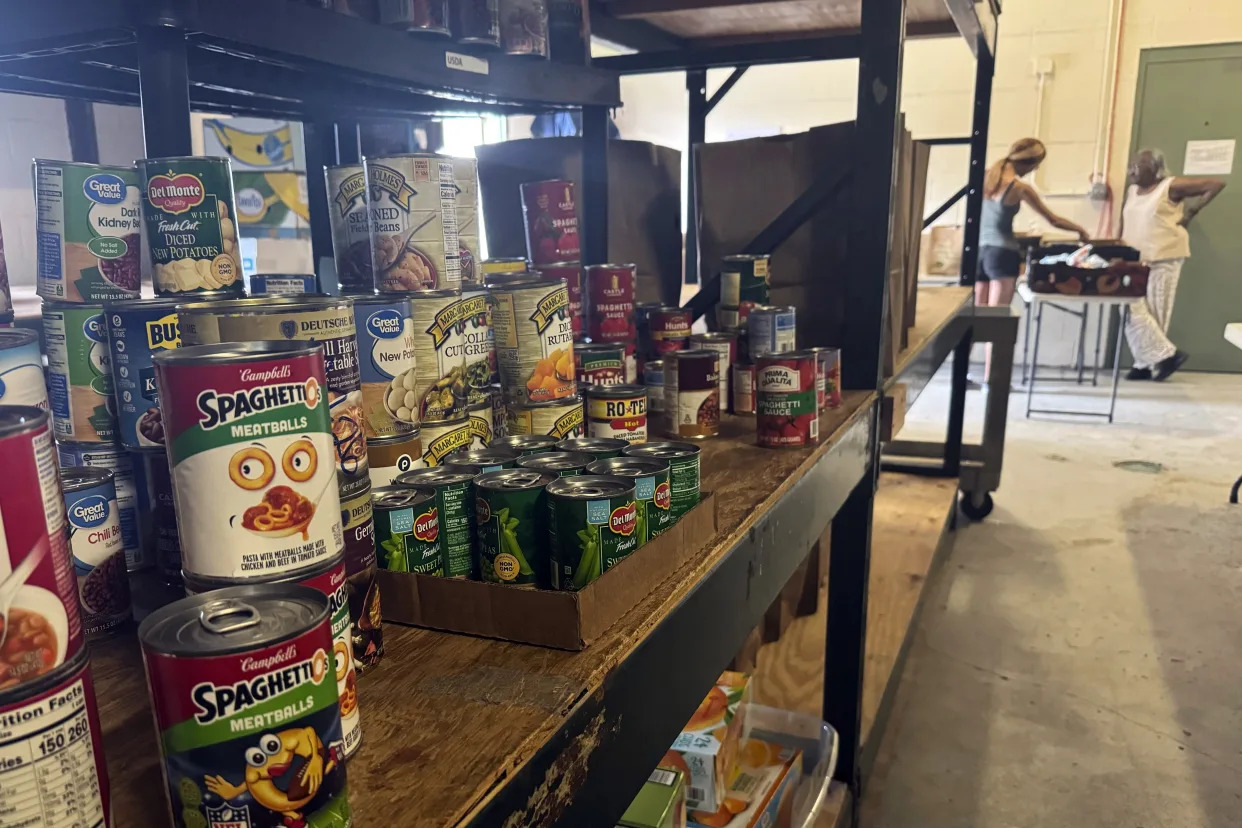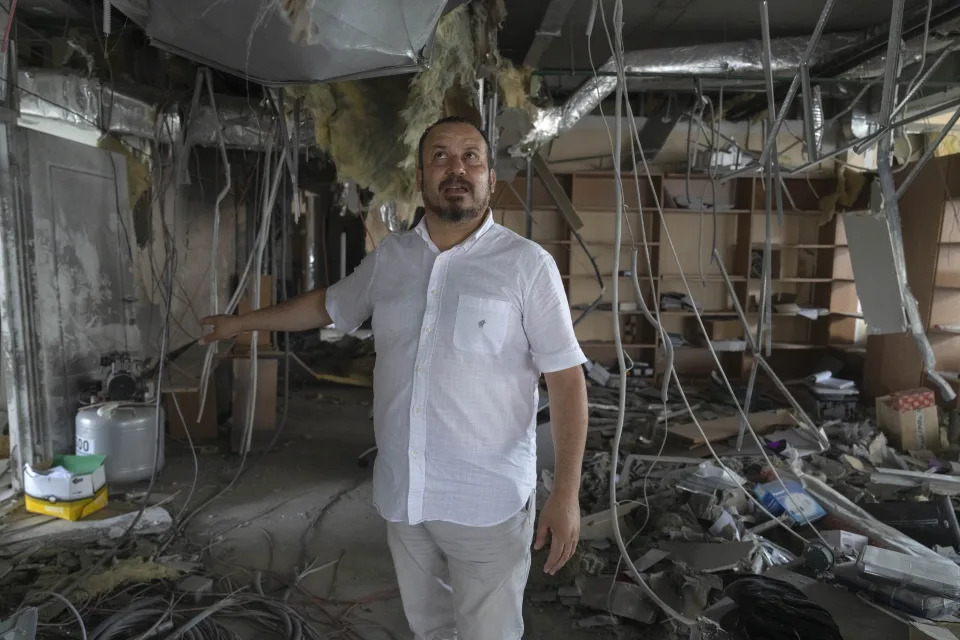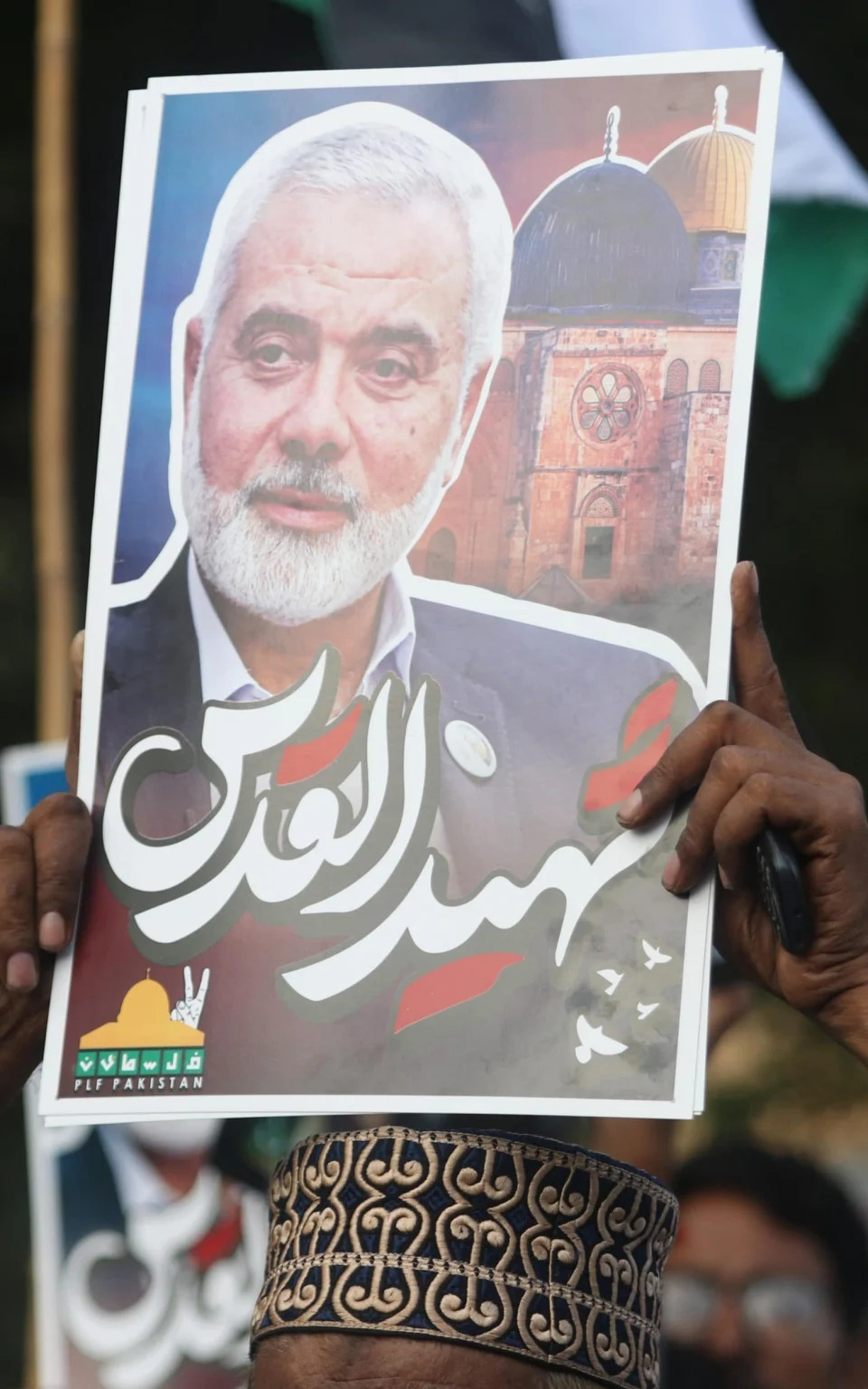Thousands were arrested at college protests. For students, the fallout was only beginning
NAMU SAMPATH of The Springfield Republican,
MONICA OBRADOVIC of The St. Louis Post-Dispatch,
HILARY BURNS of The Boston Globe,
CHRISTOPHER L. KELLER of The Associated Press
Thu, August 1, 2024 at 10:03 PM MDT·8 min read
307



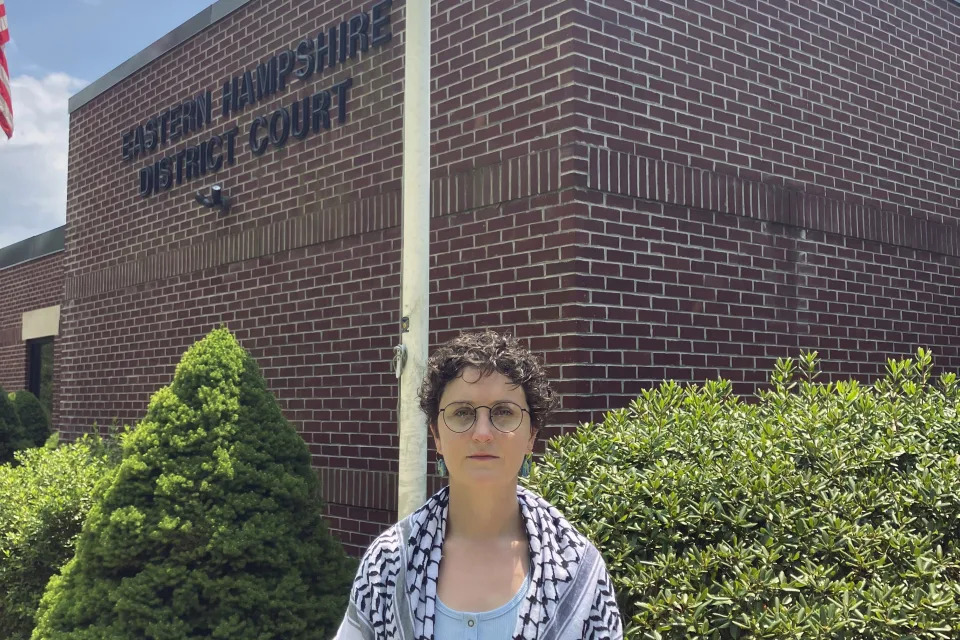
Annie McGrew, an economics graduate student at the University of Massachusetts Amherst, stands for a portrait in front of the Eastern Hampshire District Court in Belchertown, Mass., Wednesday, July 17, 2024. She is facing misdemeanor charges. (Namu Sampath/The Republican via AP)
AMHERST, Mass. (AP) — Since her arrest at a protest at the University of Massachusetts, Annie McGrew has been pivoting between two sets of hearings: one for the misdemeanor charges she faces in court, and another for violations of the college's conduct code.
It has kept the graduate student from work toward finishing her dissertation in economics.
“It’s been a really rough few months for me since my arrest,” McGrew said. “I never imagined this is how UMass (administration) would respond.”
Some 3,200 people were arrested this spring during a wave of pro-Palestinian tent encampments protesting the war in Gaza. While some colleges ended demonstrations by striking deals with the students, or simply waited them out, others called in police when protesters refused to leave.
Many students have already seen those charges dismissed. But the cases have yet to be resolved for hundreds of people at campuses that saw the highest number of arrests, according to an analysis of data gathered by The Associated Press and partner newsrooms.
Along with the legal limbo, those students face uncertainty in their academic careers. Some remain steadfast, saying they would have made the same decisions to protest even if they had known the consequences. Others have struggled with the aftermath of the arrests, harboring doubts about whether to stay enrolled in college at all.
In St. Louis, Valencia Alvarez is waiting to hear what will come of the potential charges she and 99 others could face for a protest April 27 that lasted less than half a day at Washington University.
Twenty-three of those arrested were students. In June, the university gave them two options: They could face a hearing with the Office of Student Conduct, or they could “accept responsibility” and forgo further investigation. Alvarez took the first option.
“I don’t really plan on being quiet about this, and I think that’s the goal of the second option,” Alvarez said.
The demonstrations swept public and private universities, on campuses large and small, urban and rural. As students return this fall, colleges are bracing for more protests against both Israel's military and Hamas, and strategizing over tactics including when to call in law enforcement — decisions that have had lasting reverberations.
Some college leaders said calling police was the only option to end protests that stood in the way of commencement ceremonies, disrupted campus life and included instances of antisemitic signs and language.
Student groups and some faculty members have blasted college leaders for inviting police inside their gates. In their view, the police actions often trampled peaceful demonstrations with unnecessary levels of force.
Which charges are worth pursuing?
The vast majority of the cases against the demonstrators — ranging from students and faculty to people without any ties to the colleges — involve misdemeanors or lower-level charges. Examples include trespassing, failure to disperse, disorderly conduct and resisting arrest.
More serious charges were filed against demonstrators who occupied a campus building at Columbia University, where some were arrested initially on felony trespassing charges. Those were lowered to misdemeanors, and dozens of students have had their charges dropped. In a decision criticized by Jewish groups, prosecutors said there was a lack of evidence tying them to acts of property damage, and none of the students had criminal histories.
Prosecutors in several cities are still evaluating whether to pursue charges. But in many cases, officials have indicated they do not intend to pursue low-level violations, according to AP’s review of data on campuses with at least 100 arrests.
In upstate New York, the Ulster County district attorney asked judges to dismiss 129 cases stemming from arrests at the State University of New York at New Paltz.
“I have concluded that it is best to dismiss these charges now and relieve all concerned and the courts of any further burdens, expenses, and expenditures of scarce public and judicial resources,” District Attorney Emmanuel Nneji wrote in June.
New Paltz students said they were sitting with their arms interlocked when officers hauled them away on May 2.
“It was handled very brutally,” said Maddison Tirado, a student whose trespassing charge has been dismissed. Tirado said protesters were treated as if authorities saw them “like little terrorists running around.”
One student demonstrator, Ezra Baptist, said he was taken to a hospital with a concussion and a cut after being thrown forward and hitting his head during his arrest by state troopers. He was supposed to avoid looking at screens because of his injury and could not complete one class he needed to graduate in May.
State police said if anyone believes troopers acted inappropriately, they should file a complaint so it can be investigated. Another police agency at the scene, the county sheriff’s office, said officers showed restraint and that a trooper was injured when demonstrators threw bottles.
Tensions have run high on college campuses since Oct. 7, when Hamas militants assaulted southern Israel and killed 1,200 people, most of them civilians, and took about 250 hostages. Israel’s offensive has killed more than 39,000 Palestinians, according to local health authorities.
Arrests put students' degrees on hold
For some students, the impact on their academic careers has affected them more than any legal jeopardy.
At Washington University, conduct hearings for arrested students began recently but have yet to result in disciplinary decisions. In the meantime, Alvarez does not have the master’s degree in public health she would have received by now if not for her arrest.
Alvarez, who hopes to branch into social justice and community organizing, said she doesn't have regrets. But that’s not to say the protest didn’t come at a cost.
“I want that degree,” Alvarez said. “I worked four jobs throughout my two years at Wash U to be able to afford tuition without pulling out any loans.”
At Emerson College in Boston, 118 people were arrested when police were asked to enforce a city ordinance against camping on public property. All were charged with disturbing the peace and granted “pre-arraignment diversion,” which means no charges will be filed in exchange for 40 hours of community service, prosecutors said.
Owen Buxton, an Emerson student, said he suffered a concussion when police shoved him into a bronze statue. It was his second arrest of the semester for protesting the war in Gaza. The experience made it hard for him to concentrate or participate in classes.
“It stifled all my creativity — I didn’t make anything for months, which is not typical of me,” said Buxton, a filmmaker.
Emerson allowed students to take the semester pass-fail following an outcry over the arrests.
A spokesperson for the Boston Police Department said anybody with concerns can file complaints with the internal affairs office. The department previously said there were no injuries during the Emerson arrests.
A reckoning over inviting police to campus
At the UMass campus in Amherst, students recalled a peaceful demonstration with singing and dancing before police arrived. It was the second tent encampment students had put up that week. UMass Chancellor Javier Reyes said he ordered the sweep after discussions broke down with protesters.
“Let me be clear — involving law enforcement is the absolute last resort,” Reyes wrote to the campus community.
The law enforcement response, including 117 police vehicles on campus, unsettled protesters. McGrew remembers seeing police with riot gear rushing the crowd of students. A total of 134 people were arrested.
As arrestees were processed at the university's sports arena, graduate student Charles Sullivan, who is transgender, said they felt humiliated by campus police. An officer, Sullivan said, forced them to loudly describe their genitalia to gain access to a restroom.
Sullivan has since decided to leave the university to continue their studies, in part because of the arrest. Wrapping up a master’s degree in anthropology, Sullivan will move to Ohio in the fall to pursue a Ph.D., instead of continuing at UMass.
“I think mostly I’m just kind of ready to get out of this place,” Sullivan said.
Many campus organizations have rebuked Reyes for deploying police, including the UMass faculty senate, which passed a vote of no confidence against the chancellor.
In June, Reyes announced a task force to review campus policies on demonstrations, including the land-use policy many arrestees were charged with violating.
The group is just getting started with their work, said Anthony Paik, a member of the faculty senate and co-chair of the task force. It would have more information by the end of August, he said, just before the start of the new school year.
___
The Associated Press’ education coverage receives financial support from multiple private foundations. AP is solely responsible for all content. Find AP’s standards for working with philanthropies, a list of supporters and funded coverage areas at AP.org.
___
Associated Press writers Jake Offenhartz in New York, Michael Hill in Albany, New York, and Michael Melia in Hartford, Connecticut, contributed to this report.

